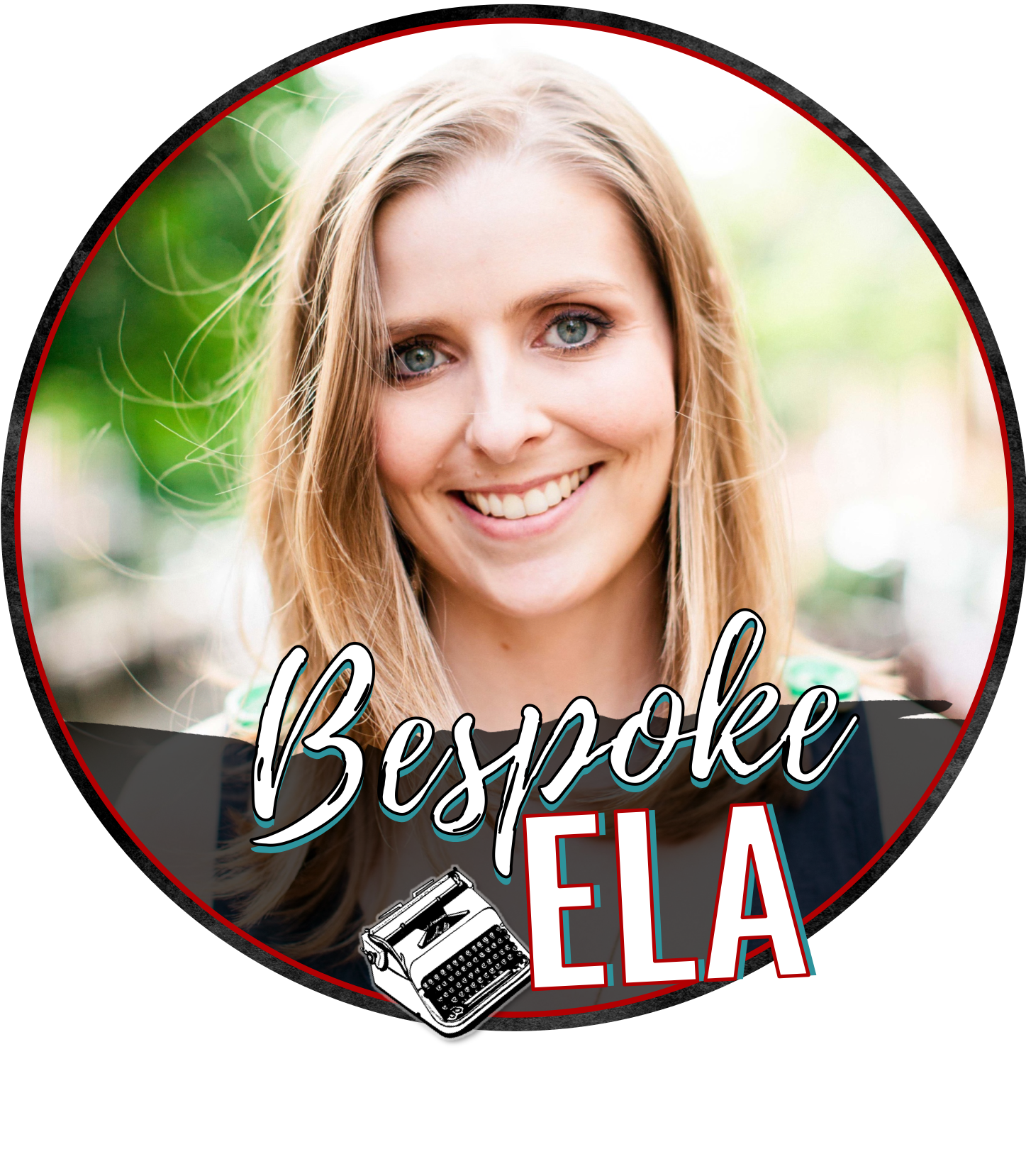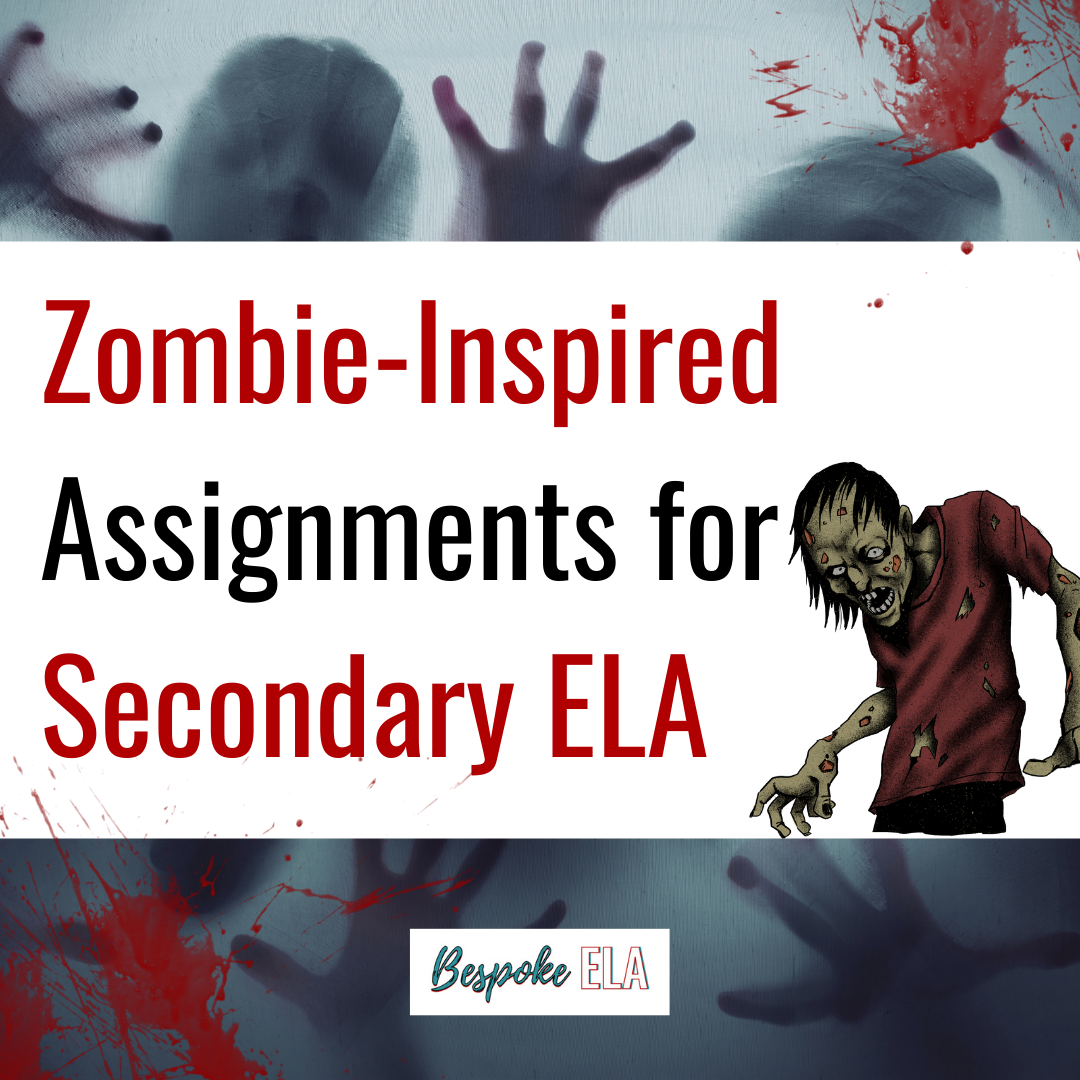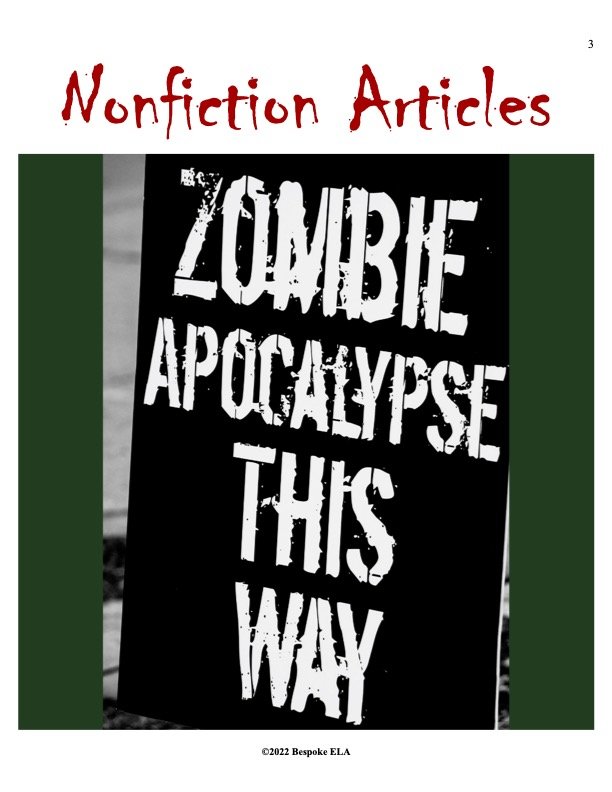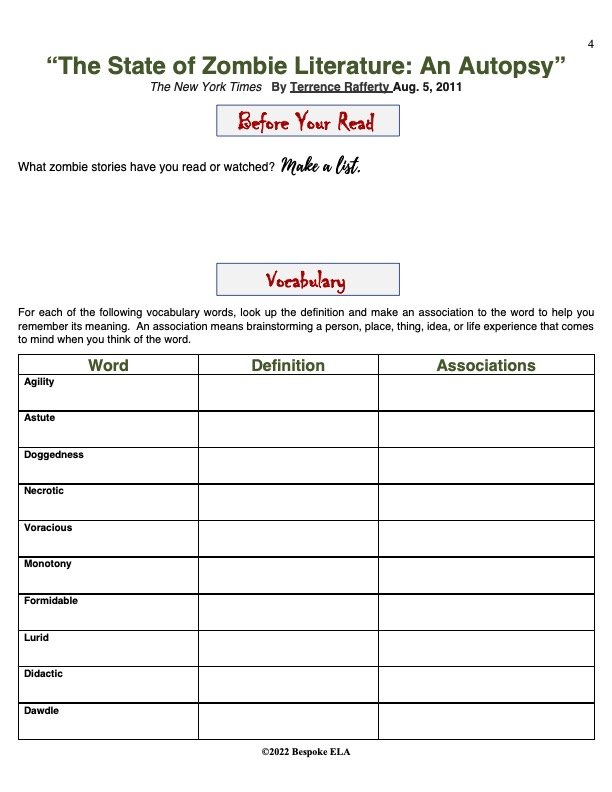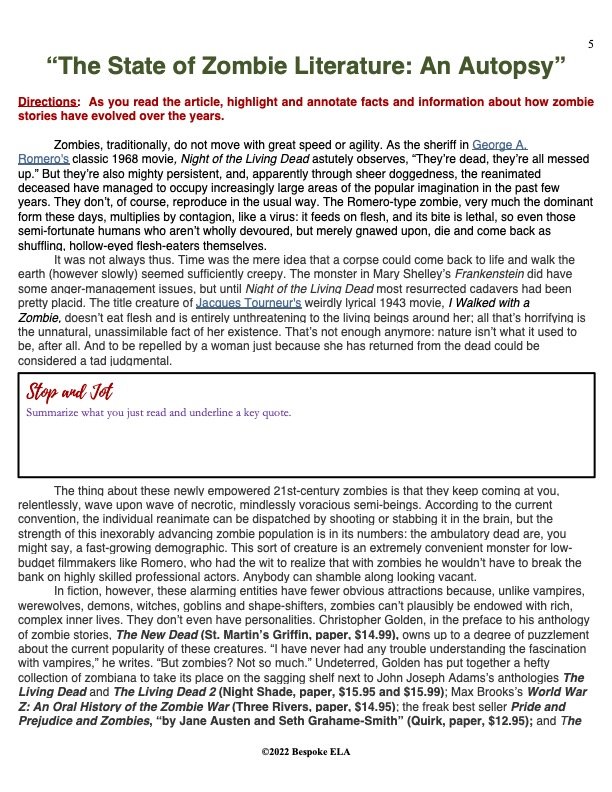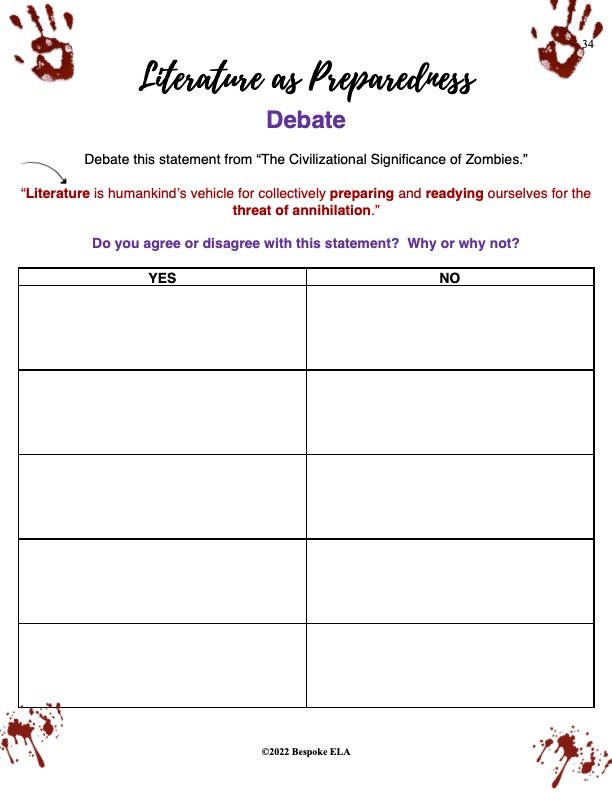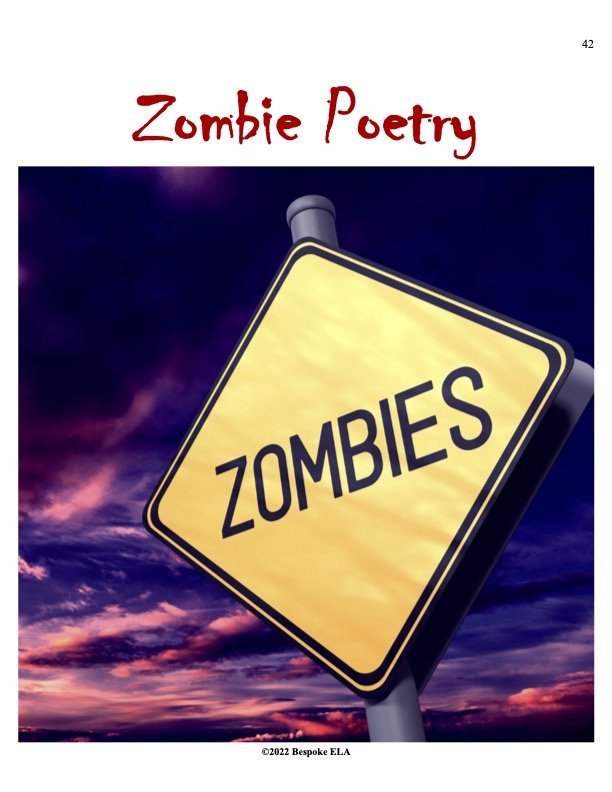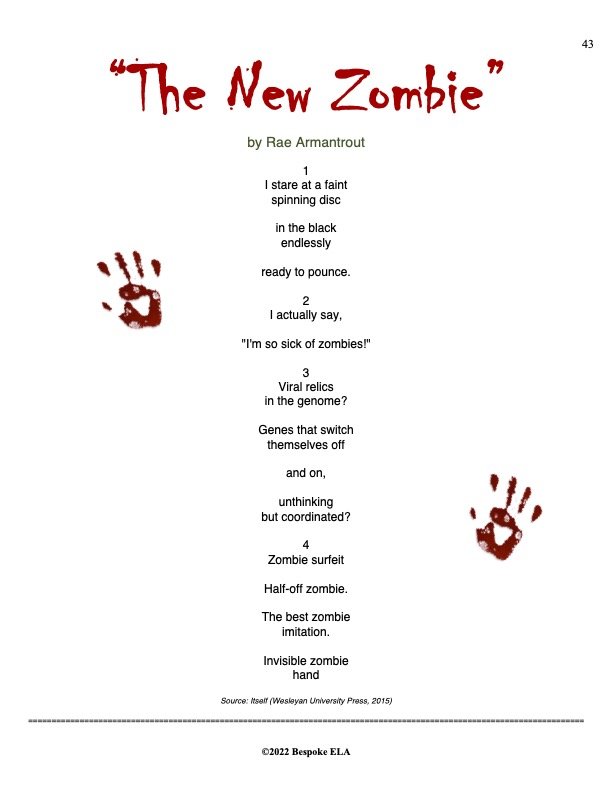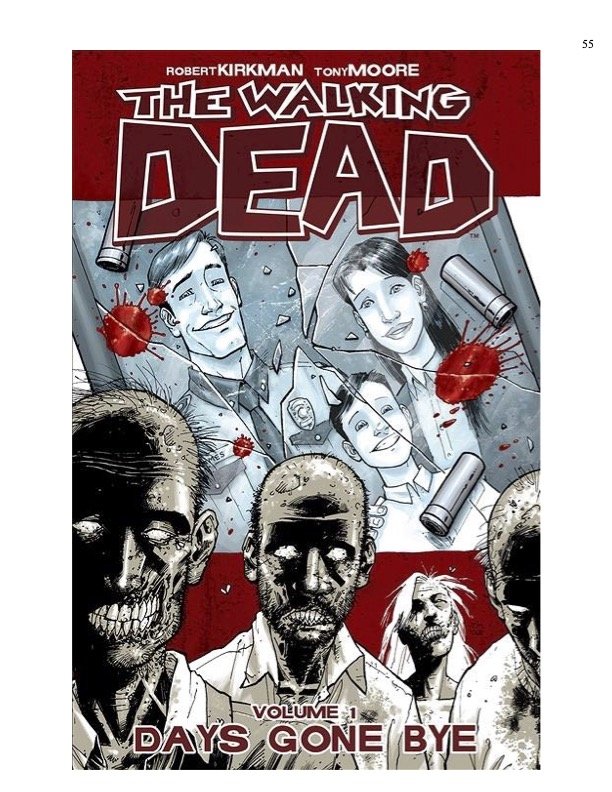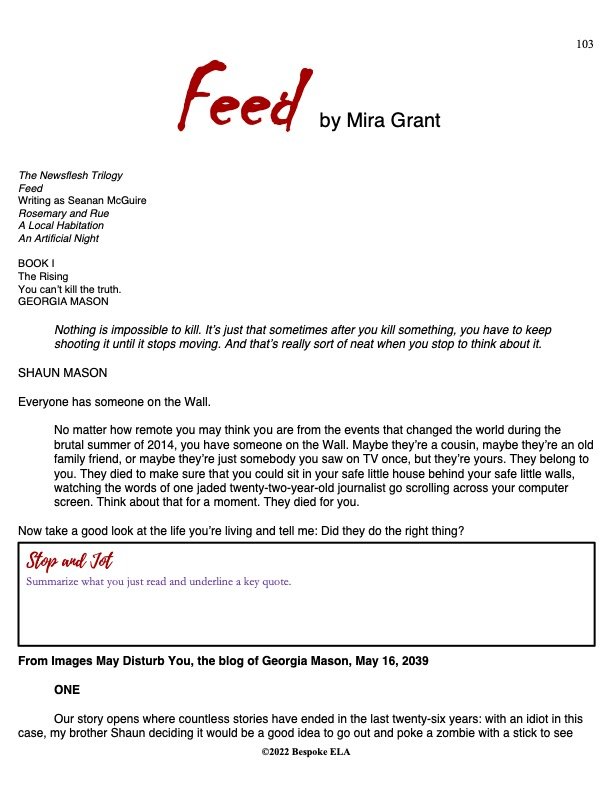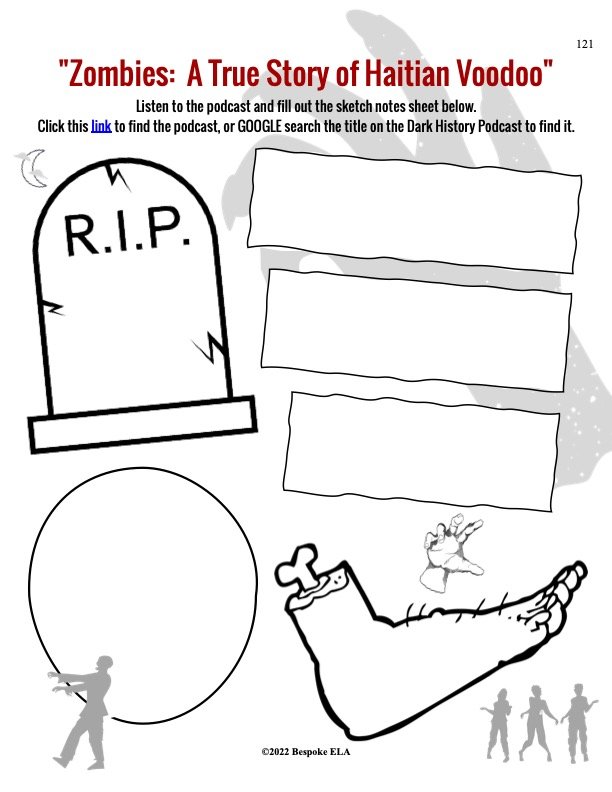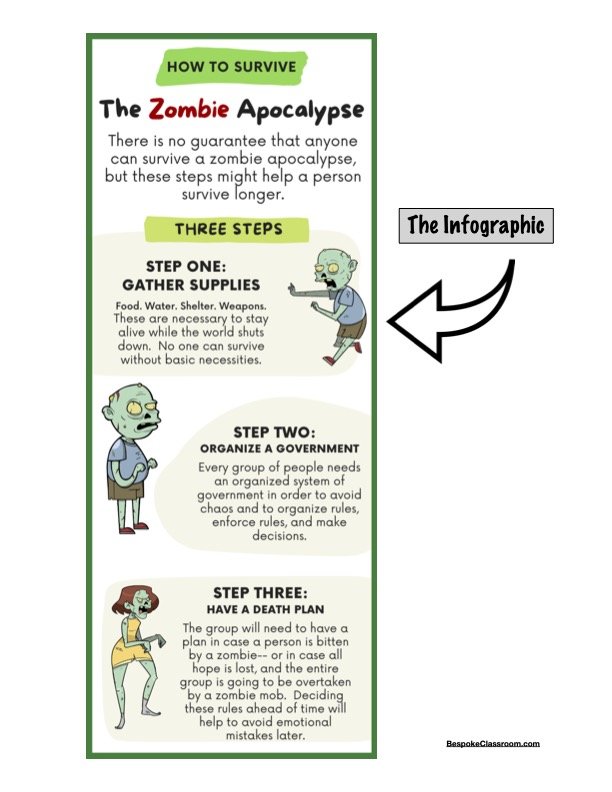Let’s face it. Zombies are cool. I love a good zombie movie… especially if it’s zombie apocalypse satire like Shaun of the Dead. As an English teacher and professor, I’m always looking for unique angles to “hook” my students, and zombies are high-interest. Why write about the typical school uniform type of topics when there are zombies? Why not plan for a zombie apocalypse and learn at the same time?
The Zombie Apocalypse-- Persuasive Speech Activity
In this activity, students will role play that they are trapped in their school by the zombie apocalypse. They have to decide whether to stay at the school... or whether to leave the school for an alternate location. In order to make this precarious decision, they must weigh the pros and cons of both scenarios and then craft a persuasive speech to convince the class (the rest of their group) to go or to stay.
In this high-interest activity, students will employ the devices and techniques of persuasive writing and include rhetorical devices and appeals to persuade their audience. They will present their speeches to the class using visual aids to enhance their overall messages.
Students will take interest in this topic and at having the opportunity to be creative! This make a great unit for any time of year but especially Halloween!
If you are interested in a print-ready version of this assignment, click here.
Zombie Writing Prompts
Other than writing a persuasive speech and arguing where to go during the zombie apocalypse, students can respond to these fun, zombie-themed, writing prompts. You can use these prompts at the beginning of class as individual, paired, or group writing assignments. I have posted a few of them here for you to use as you wish, but you can find the entire pack of prompts here as part of The Ultimate Zombie Apocalypse Literary Unit.
Students can be inspired to write creative stories from these prompts and then work backwards to assess their own theme and how they use literary devices to communicate that theme. I like to have students analyze their own creations because when they can “see” their own work through the eyes of an analyst or critic, they can use that experiential knowledge to help them analyze future texts. Writers (and artists in general) have a unique understanding of the creation process that I want students to also experience.
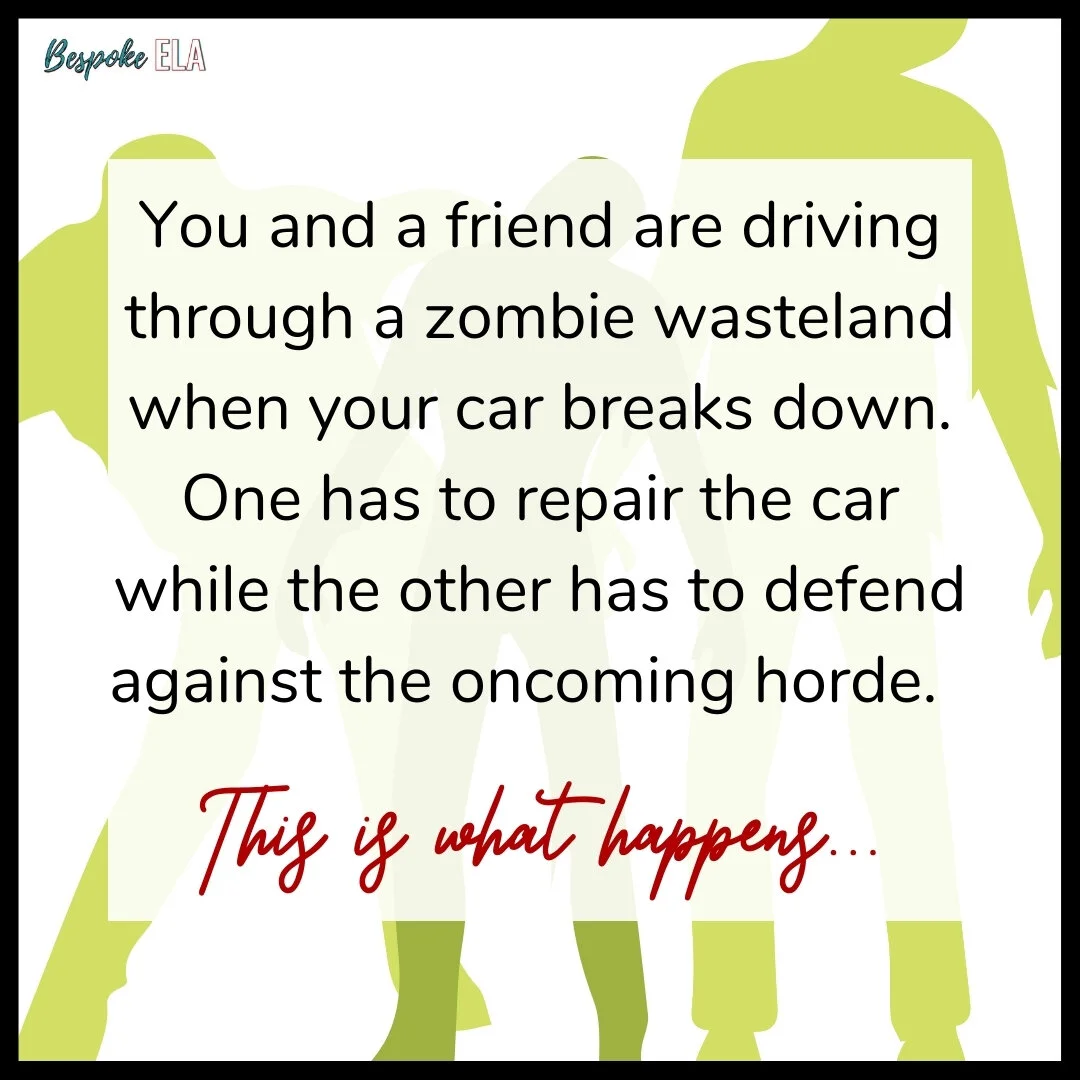
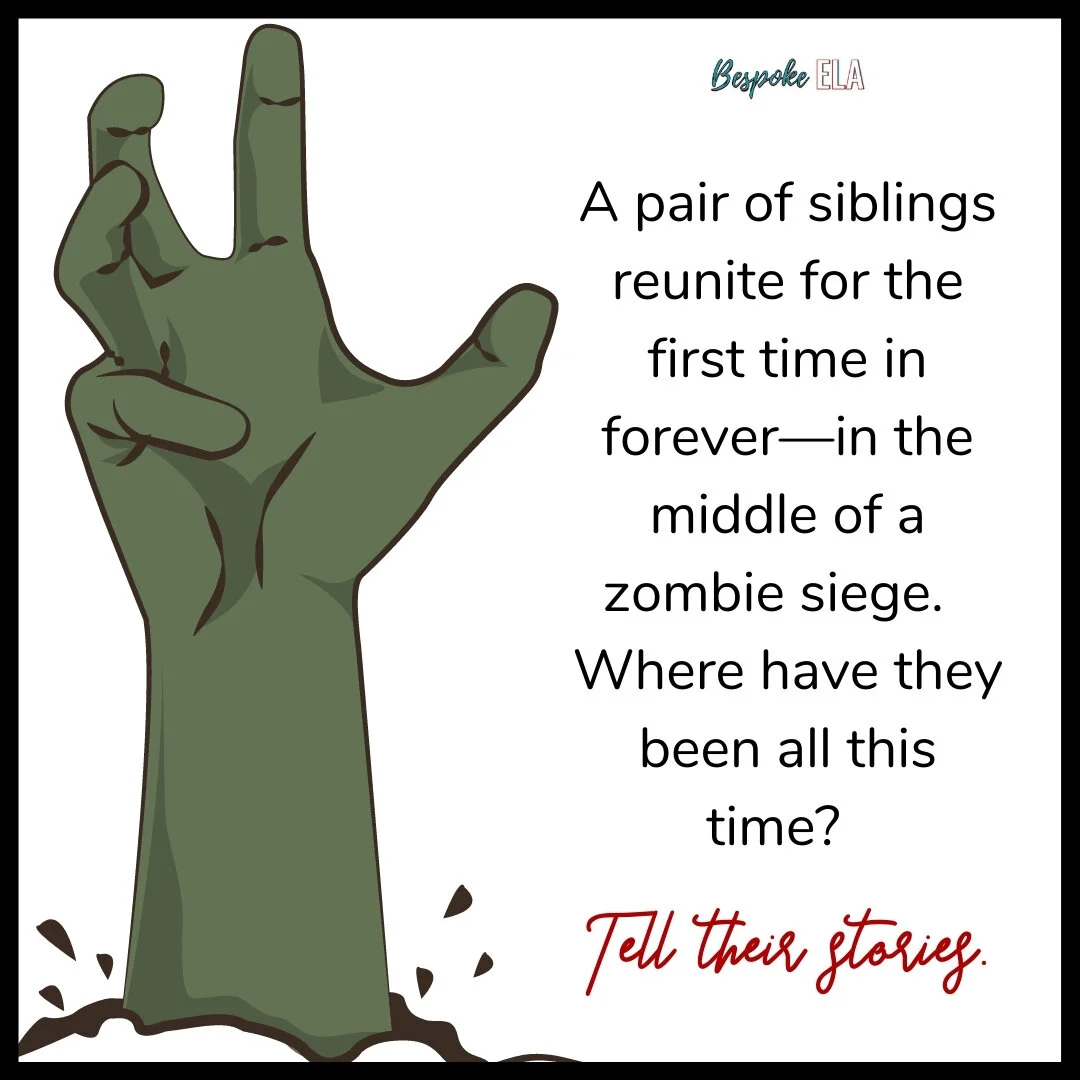
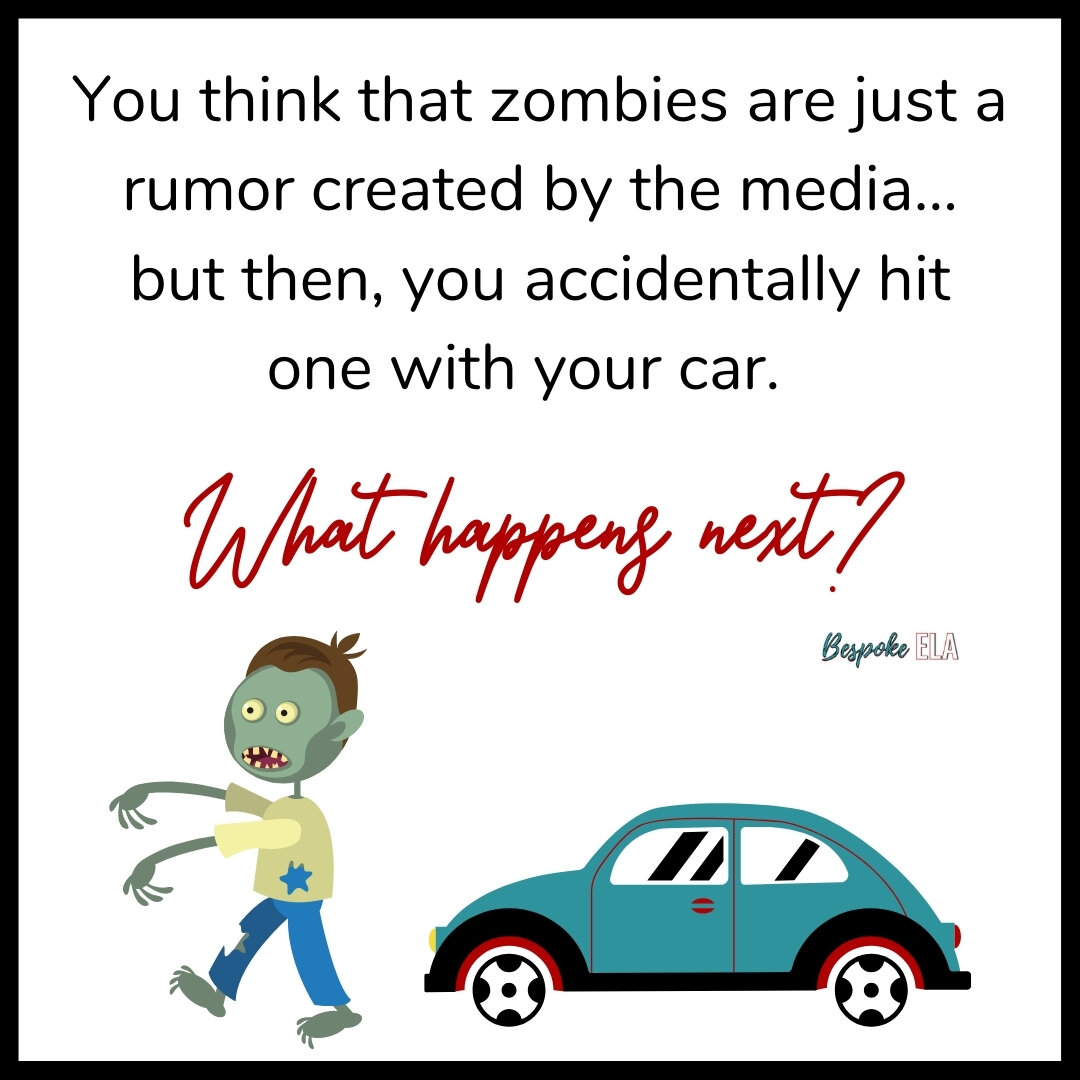
Zombies as a Literary Lens
Part of the fascination with zombies is the philosophical questions that arise from the thought of their “existence” (and forthcoming desire to take over the planet). In fact, it these very philosophical questions that give merit to including zombies in ELA curriculum, morphing the study of zombies into a lens for discovery. The thematic connection between the zombie mythology and literature raises essential questions such as:
What does it mean to be human?
What does it mean to live the “good life”?
How do we deal with death?
What is the meaning of life?
Are we naturally good or evil… or both?
Are we born with inherited traits (Plato) or as a “blank slate” (John Locke)?
Are we a creation of nature or nurture… or both?
What is the best way to live life together?
In order to use the zombie mythology as a philosophical lens, students can study the following texts to see how they grapple with these questions. (Undoubtedly, you will see science fiction and dystopian texts dominating this list).
The Obvious Texts (about zombies and/or apocalypse)
The Road by Cormac McCarthy
Zone One by Colson Whitehead
Pride and Prejudice and Zombies by Seth Grahame-Smith
World War Z by Max Brooks
I am Legend by Richard Matheson
Severence by Ling Ma
The Slynx by Tatyana Tolstaya, tr. Jamey Gambrell
Leave the World Behind by Rumaan Alam
Parable of the Sower by Octavia Butler
The Girl with All the Gifts by M. R. Carey
The Stand by Stephen King
The Not-so-Obvious Texts
Ezekiel from The Bible
Frankenstein by Mary Shelley
Grendel by John Gardner
Metamorphosis by Franz Kafka
Lord of the Flies by William Golding
The Myth of Sisyphus by Albert Camus
Other topical themes to explore through the lens of the zombie include grief, loss, family, community, ethical responsibility, science, medicine, revenge, instinct, survival, blood lust, isolation, power, and more. These topics all fall under the umbrella topic of what it means to be human but are still interesting points of discussion.
The Ultimate Zombie Apocalypse Literary Bundle includes the following texts:
Nonfiction Articles
1. “The State of Zombie Literature: An Autopsy”— The New York Times
2. “Undead & Read: Why the literary zombie mash-up trend just won’t die”
3. “The Civilizational Significance of Zombies”— The Atlantic
Poems
1. “The New Zombie” by Rae Armantrout
2. “Eat” by Chen Chen
3. “How it Ends” by Catherine Pierce
4. “To Live in the Zombie Apocalypse” by Burlee Vang
Comic Book
The Walking Dead— Volume One— “Days Gone By” (excerpt)
Novel Excerpts
1. The Road by Cormac McCarthy
2. Tell My Horse VOODOO and Life in Haiti and Jamaica by Zora Neale Hurston
3. Feed by Myra Grant
Short Stories
1. “TheAfflicted” byMatthewJohnson
Podcasts
1. "Zombies: A True Story of Haitian Voodoo"
2. "The Zombie Hunter: The Canal Murders" (first three episodes)
Creating a Zombie Survival Guide
This activity takes direct inspiration from The Zombie Survival Guide: Complete Protection from the Living Dead by Max Brooks as well as the CDC’s website for Zombie Preparedness (yes, it’s real). An imminent zombie apocalypse provides a high-interest platform for writing a process essay around the concept of how best to survive the attack.
Students can create a Zombie Survival Guide that address the following questions:
What do we need to do to be prepared?
What’s the plan?
What are the steps we need to take?
How will we survive?
After creating their guides, students can present them to the class and defend argue why their guide contains the best plan of action.
Who Should Survive? Argument Game
For this assignment, students will randomly draw a profile to take on as their own. This profile will include an age and occupation. Students will prepare a brief letter to the Selection Committee in which they present qualifications that explain why they should be selected given their age and occupation. They will read their letters to the class, which will play the part of the Selection Committee. After hearing the arguments, the community will debate and vote on which students should be one of the individuals permitted to receive the vaccine and live on the compound.
There are lots more engaging zombie-themed literary activities where these comes from! If you are interested in a ready-made zombie unit, be sure to check out the brand new Bespoke ELA Ultimate Zombie Apocalypse Literary Themed Bundle right here!
About the Author
Meredith is the founder and creator of TeachWriting.org and Bespoke ELA. She has taught high school English for 10+ years in Dallas, Chicago, and New York City and holds a M.A. in Literature from Northwestern University. She has always had a connection to the written word-- through songwriting, screenplay writing, and essay writing-- and she enjoys the process of teaching students how to express their ideas. Meredith enjoys life with her sweet daughter, crazy Yorkie, and monkey cat.
